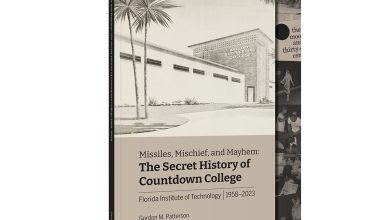Going Green–A New Perspective Learned from Study Abroad: Taiwan
Master’s student and Student Services Coordinator, Kate Broderick is studying in Taiwan for a three-week intensive study of Chinese language and culture, based at Tunghai University in Taichung. The program was made possible by a scholarship from the School of Arts and Communication at Florida Tech. She will be chronicling her experience over the next three weeks on our blog.
While “green energy” may be the chase phrase of the season in the US, it is only after studying in Taiwan as part of the Study Abroad: Taiwan through the department of Humanities and Communication that I’ve realized how fundamentally different our perceptions on what it means to be eco-friendly is. I am the first to admit that I love my AV permanently set at a balmy 72, I don’t always remember to turn the lights off (although I try and make a conscious effort one this one at least), and sometimes I run the dishwasher when there are only a handful of dishes. It is only through the complete cultural immersion in Taiwan that I’ve realized how truly wasteful we are, and how new technology isn’t the only thing we have to change if we want to be truly a “green” society.
I want to start off by saying that my intent is not to criticize America, but having just returned from the European Study Abroad: The Netherlands program a week before arriving in Taiwan, I can’t help but view the world and our place in it in an entirely different way. My experiences in the Netherlands, Germany, Belgium, and Taiwan have made me appreciate America more, but it also made me see how fundamentally we as a society differ from the rest of the world. I am enchanted by the Dutch concept of open innovation, and the Taiwanese concept of personal responsibility is something that equally resonates with me. Now, to return to my original point: arriving at a green society.
Prior to my arrival in Taiwan, I was told that I would be in an air-conditioned dorm. This is true: my dorm does have air conditioning, but not air conditioning as we know it. To set the stage, the temperature in Taiwan has hovered around 85 (dropping to around 80 at night). Because walking is the only means of transit across the 340 acre campus, you get used to arriving back at your dorm covered with a salty film of sweat. In part due to expense, but mostly to be environmentally conscious, buildings are not air conditioned: each room has a separate unit that you turn off upon exiting the room (the exception to this rule being major department stores—more on these later). Even though most rooms are AC-equipped, in generally you either turn on a fan or open the windows and let the constant breeze in. In the case of my dorm, I have a room I share with three other girls, so I cannot play AC-dictator. We were given an “AC credit card” by the program coordinator, and it needs to be inserted into the AC control in order for the unit to function. The self-imposed AC schedule collectively set by my roommates this: just before tucking in for the night, you blast the AC for a good 20 minutes, and then shut it off. Windows are opened to let in the breeze, and off to la-la land you go. During the day, the windows are kept open and the AC is kept off.
I admit the 20 minutes of AC per day was an entirely new concept. I like to keep the air really cold when I sleep so I can snuggle into my blankets. Imagine my surprise when I discovered it is just as easy to sleep in a hot room with less blankets than a cold room with three comforters. While it took several days to get adjusted, I adapted much, much faster than I would have ever expected. As Americans, we are infamous for rating high on individualism—I have the individual right to do whatever the heck I want. I could set the AC to freezing cold all day, and I doubt my roommates would complain. But the thing I have learned the most over the variances in the AC usage is how it feels to be part of a cohesive group. There is something so pleasant and welcoming about becoming an integral part of a group. Taiwan, heavily influence by Confucian ideals, emphasizes the community over the individual. It is odd that in the collectivist culture, I feel that I am truly learning how to be an individual, and what personal responsibility means: we each have an important part, and while we are empowered with the right to make our own decisions (such as wasting as much energy as we want), we also need to consider our actions in a greater context. Just because we can, should we? We are not in competition with nature—we don’t need to dominate and control. We need to develop ways to work in harmony with the earth. Becoming green shouldn’t be solely about shaping the earth to suit our needs, but also about how we need to change our behavior to arrive at a green future.
These thoughts are certainly not new, and certainly not new to America, but I feel as though my experiences in Taiwan have led me to begin to understand what being human is all about. There is a saying in Taiwan that you cannot become a person until you are made a person by society, that a person cannot be “human” without the support of another: an interconnected relationship of personal responsibility and mutual obligation. Until we begin to realize, or at least consider, that our actions are an integral part of shaping the world and creating our society, we can struggle and strive to develop new green technologies, but will ultimately be ineffectual in its implementation.
Keep posted for the latest from Taiwan—I promise next time not to sound so preachy!





